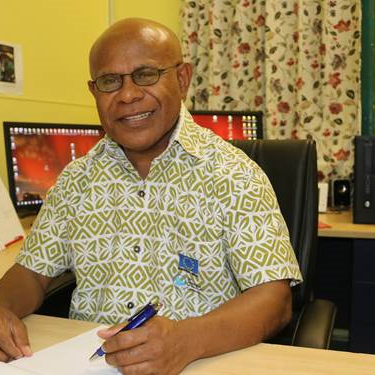By Howard Aru
When employment is scarce, why bring in foreign workers? Why Filipinos? Buzz FM96.3 posed these questions to this writer recently during an hour-long interview leading up to our hosting of the National Economic and Investment Forum at the Warwick Le Lagon from 12-13 March. Important question, as it will help to inform this brief analysis of our prevailing domestic labour environment in Vanuatu. Some of the points in this article will be frank, so if you are a Ni-Van reading it, be humble and objective.
Conservative estimates are that some 20,000+ (and still counting) Ni-Van workers are currently serving overseas under the Seasonal Worker Programme (SWP), Recognised Seasonal Employer (RSE) scheme, cruiseships, and other private arrangements. Both the RSE and SWP were designed for unskilled rural workers. Today, skilled workers and graduates in Port Vila, Santo and elsewhere have also joined the ranks. Initially people went for just 3 months only. Today, up to 3 years. The trend is alarming. Relevant government agencies are working to address the matter in various ways.
Two key challenges
Despite its inherent issues, seasonal work will continue to be a good source of remittances for families across Vanuatu. We have two other burning issues though that we must seriously deal with decisively. One – Skills Training, and two – Work Ethics. Just because we have thousands of youths roaming the streets today doesn’t mean they can fill skilled job vacancies. Skills are acquired through specialised training and work experience over time.
Work ethics is the most critical issue to tackle, especially for those of us already in various employments in the private sector, Non-Governmental Organisations (NGOs) and more so, in Government and public institutions.
Skills training
The Government must invest more, systematically and proactively in skills training. It has no choice. The pool of trainees has to be increased in order to help cushion the adverse effects of the skills drain that’s been plaguing the country over the past five or more years.
For many years skills training was considered as ‘second chance’ or ‘second grade’ education for Years 6 and 10 ‘school dropouts’ and failures. These degrading vocabularies have in turn shaped our national education policy decisions accordingly. The Government has excessively pumped billions into a white-colar type education yet committed the unforgiveable crime of not creating job opportunities to absorb its graduates.
Public service cannot absorb all graduates, so the government should have listened more attentively over the past 10-20 years and created a more condusive and enabling environemnt for investments – both foreign and domestic. Investors create jobs for people. That’s what all other countries in the region and abroad do, except proud yet poor Vanuatu.
As such, the massive brain drain we see today is unsurprising. You reap what you sow, right? That’s not all. Vanuatu, has for several years suffered from a shocking and worsening literacy rate compared to other Pacific Island Countries, as revealed in the recent Pacific Island Literacy and Numeracy Assessment (PILNA) Reports issued by the Pacific Community (SPC). Literacy is the ability to read and write. Students can’t read and write in higher classes simply because they have not been taught and urged especially to read good books. Remember, language shapes thought!
The country needs to invest more in skills training to fill the massive skills gap we’re currently facing in Vanuatu, in all sectors. The Ministries of Internal Affairs and Finance, through the Vanuatu Chamber of Commerce and Industry (VCCI), created a pathway to seek the support of foreign workers in various enterprises in the country over the past year to replace skills that have been heavily drained through labour mobility programs overseas. We need qualified plumbers, carpenters, mechanics, electronic engineers, etc. We have to invest in these skills. Now on to the second and perhaps the most fundamental issue affecting our country’s workforce today. Work ethics!
Work Ethics
From many years of observations, generally Ni-Vans have very poor work ethics. We’ve had serious issues with work ethics long before the seasonal worker programs started over a decade ago. Our work culture, notably in public institutions, can be so appalling that you wonder why people sit in those offices and get paid? The recent launching of the new Public Service Commission (PSC) Staff Manual is commendable, but if there is no discipline among the officials managing Government Ministries and Departments, those manuals are just meaningless colourful documents that will only continue to decorate shelves. Let’s enumerate the facts.
You depart late to work, yet blame the bus or school drop-offs. You arrive late to work, yet faithfully rush home or to the kava bar on time without making up for hours lost. A lot of fabricated sick leaves just to entertain your poor and lazy health habits. When you are at work your performance and productivity are below par due to various factors – excessive kava drinking, late night alcohol parties, Facebook, computer games, and general time-wasting. Excessive time out to attend deaths and weddings. You produce substandard quality of work unreflective of the qualifications you claim, and one wonders what university you graduated from.
Clients drop paperwork for action at your reception. They return a few days later and you tell them almost innocently, ‘oh sorry we’ve lost your application, can you resubmit?’ A point for correction is raised to you on a document, it takes you an entire month to rectify an issue which could have been very easily resolved within 5 minutes, as what happened with a recent case in a certain high office. Quite frankly, the level of mediocracy and inefficiency in a lot of government agencies today is unbelievably so high that you can imagine why clients get extremely frustrated trying to get things done with and through those organisations. We generally have a sick organisational culture that must be fixed urgently.
Why the EEV and Filipinos?
Because of the departure of a massive number of skilled Ni-Van workers under the labour mobility program, in 2023 the Government approved an Emergency Employment Visa (EEV) to bring in skilled workers to serve in various local companies. Understand this fact – the EEV was not designed for Filipinos! These people are serving all over the world, not just here in Vanuatu. Filipinos started coming to Vanuatu for several years, long before the introduction of the EEV. Fact of the matter is, they are generally highly disciplined, productive, hardworking, faithful, punctual and committed to their work.
We complain about localisation to defend our laziness at work and we expect employers to keep relying on us and paying us their hard-earned money to entertain our poor attitudes to work? It doesn’t happen that way. Reminds me of a boss who recently sacked several of his workers for missusing company fuel on excessive private runs, and ended up doing the work himself. This happens all the time, here in Vanuatu. Poor work ethics – that’s the biggest elephant in the room.
It has to be dealt with rather than find the easy way out by blaming foreign workers and Filipinos over our very poor and despicable attitudes to work. It is high time we manned up and called a spade a spade rather than look for scapegoats to blame for our own very bad attitudes to work. Take it or leave it!

Howard Aru is current CEO of the Vanuatu Foreign Investment Promotion Agency (VFIPA) and former Director General of the Ministry of Agriculture, Livestock, Forestry, Fisheries and Biosecurity, and the Ministry of Health.





